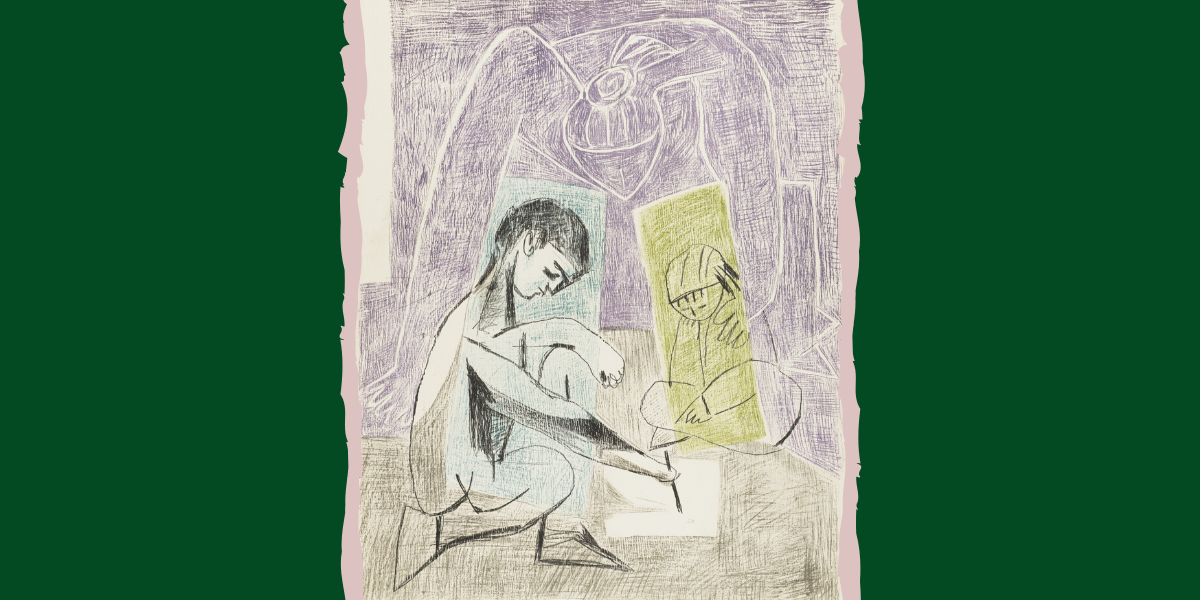Thinking about the episode of alleged irregular foster care cases in Reggio Emilia, we asked psychiatrist Andrea Masini to tell us what might happen when a social worker assumes that he or she is facing a case of domestic violence or family abuse.
Psychiatrist and psycotherapist Andrea Masini is the director of the scientific journal Il sogno della farfalla and professor in the Dynamic Psychotherapy School Bios Psichè.
«Nowadays there is still a cultural and historical prejudice against the human reality of children: the idea of them being tabulae rasae. Indeed, the attitude towards children is often motivated by the image of them being blank slates to write on. This idea even prevails in people who are regularly in contact with children, due to their professions, and who thus could prompt children to say things that they wouldn’t otherwise say. And children say what is suggested by adults because they naturally trust them, unfortunately». Recently (around 5th July 2019) there was much talk about the “Angels & Demons” investigation into alleged illegal foster care cases regarding children from the province of Reggio Emilia. Respecting the presumption of innocence enjoyed by all people involved in various ways in the inquiry, we asked psychiatrist Andrea Masini to explain what can happen when a specialist assumes that he or she is facing a case of domestic violence or family abuse involving minors. Regarding the Reggio Emilia case the Public Prosecutor, Marco Mescolini, told Ansa, the leading wire service in Italy, about «brainwashing of children» to create false memories (in order to remove these children from their parents and place them in other families). In a word: plagium. Nonetheless Mescolini dutifully added that «it is not the system of foster care under investigation, but rather the people involved in the Reggio Emilia case».
Professor Masini, how should we relate to a child if we want to understand if he or she has actually been abused by one of his/her parents?
“Carrying out an interrogation” or questioning a child is always very difficult, especially if we take for granted that something happened. I can clearly see that often the problem is the presence of a mentality according to which children know nothing and need to be taught what to say. On the contrary, relating with children, we must always put ourselves in a position of authentic, participative and empathetic listening. Because, as clearly stated in Human Birth Theory by Massimo Fagioli, every child holds knowledge, possesses intelligence and the capability to comprehend what happens around him/her. If this approach is lacking, any kind of relationship can be negatively affected, whether it involves a social worker, a magistrate or a psychotherapist.
Some stress the importance of asking indirect questions, to avoid suggesting standard answers.
If that kind of prejudice against children’s reality is present, even indirect questions can prove ineffective. We need to think and imagine the child as a knowledgeable human being, who knows things and, consequently, can explain them to others, in his/her own way and using his/her own words.
For youngsters, what are the consequences of this kind of prejudice?
Children can feel it, through their emotions, but they cannot prevent the psychological wound that such prejudice inflicts upon them; this moreover because it is a prejudice that is neither clearly expressed or verbalized. Furthermore, as this prejudice is very common in our culture, children may have already experienced it in their relationships with their parents, their families, or at school. This idea of a tabula rasa to be filled in by adults is still very common in our culture.
How can we overcome this situation?
We need a paradigm shift, both in Culture and Science, and we must recognize that children, using their own ways of expressing themselves, surely have a very deep and precise knowledge about relationships, about what they have been through and what life is about. If we fail to acknowledge this, we can neither imagine nor see the development process children are constantly involved in, learning language and how to cope with society. We must be aware of their capabilities and of their potential, so that we can put ourselves in a dimension of authentic listening: “I’m actually trying to understand what he or she is telling me”. This is worthwhile for doctors, social workers, and parents. But very often adults relating to youth have pre-formed judgements, made up before listening to them, even when they are assigned to delicate tasks as in the case of welfare officers, psychotherapists, or magistrates. Consequently, these adults make the situation they are facing fit their pre-formed judgements, without seeking to understand what a child is actually trying to say.
Prosecutor Mescolini said that the system of social welfare is not in question. What do you think?
Social workers often save the lives of children who are mistreated, abused, or even worse. But sadly, in clinical practise, I can see that some welfare officers make serious mistakes.
Is this due to the prejudice we talked about?
It can happen that a social worker interprets a drawing done by a child only on the basis of the conviction he or she has already formed without giving proper attention to the youngster. So the report he or she files with the magistrate may be written in a manner that leads not-so-bad mothers to lose their parenting role. And their kids are placed into foster care. I am a psychiatrist for adults therefore I am regularly involved in the psychiatric examination and evaluation of parents. Sometimes they seem like nice people, other times just one of them has problems (e.g. addiction), yet the kids are taken from both parents, even, for example, when the mother has been trying to protect her child/children.
Is there a way to avoid all of this?
If a social worker reports that he or she thinks that a child is suffering, the magistrate can decide to remove the youngster from his or her home. As we saw in the Emilia Romagna case, the system of foster care leaves the decision of what to do in the sole hands of social workers.
Are they trained to do a psychological evaluation?
It depends. Older social workers have qualifications comparable to those of kindergarten teachers. Nowadays younger social workers have to complete University studies to obtain their job. The point is that the new law needs to be fixed; everybody knows it doesn’t work. It’s too unbalanced, even for social workers themselves. If something bad happens to the minor they interviewed concluding he or she was not in danger, all the responsibility falls on their shoulders, even if they did not have the specific competency to evaluate the situation. A real change is needed also to protect social workers themselves: it is in their own interest. Because while it is true that they have great authority, if something happens, they are the only ones that are held responsible.
Translated by Ludovica Valeri, revised by Micheal Louis Stiefel
La versione in italiano è disponibile qui





